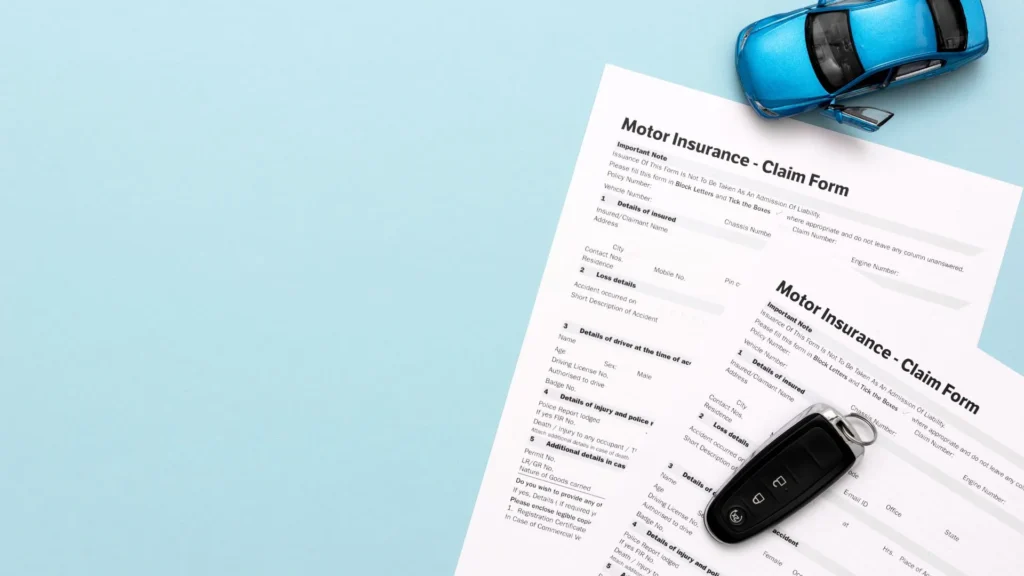Is car insurance required in your state? Car insurance is virtually mandatory in almost all US states. But, as it often turns out, car insurance policies get complicated and expensive, so many US citizens become intimidated. Depending on where you live, there are different requirements for auto insurance.
Individual state governments at the state level set and enforced car insurance laws. All American states, except one, mandate that drivers carry an active car insurance policy. New Hampshire is the only state where you are not legally obligated to get auto insurance as long as you can demonstrate your financial responsibility.
Why Do You Need Car Insurance?
Car insurance provides financial protection in an accident or other covered event that damages your car or another person’s car or injures someone else. It helps to cover the costs of repairs, medical bills, and other expenditures resulting from the car accident.
If you are found to be driving without insurance in a place where it is required, you may face legal penalties. The penalty may vary from fines and license suspension to jail time. In addition, if you are involved in an accident and do not have insurance, you may be personally responsible for covering the costs of any damage or injuries that result from it.
Why is Car Insurance Mandated?
It’s all about fixing responsibility.
Car insurance is mainly required due to your liability, or duty, for any harm to people or property while driving the vehicle. Considering that your vehicle has the potential to cause physical or material harm, you must have enough insurance to cover the costs of damages if they occur.
Although you have optional comprehensive and collision coverage to cover your vehicle, most state laws require bodily injury and property damage insurance. These coverages, which have various state-specific coverage limits, confirm financial relief for victims of damages if you cause an accident.
Minimum Car Insurance
You must maintain at least the minimum liability insurance set forth by your state. It will help get your vehicle registered and drive it legally on the road. If your vehicle is leased or on loan, you might also need comprehensive collision coverage with low deductibles and gap insurance. This is because the third party, which is typically your dealership or bank financing the loan, is required to safeguard its investment with increased coverage.
New Hampshire is the only state where auto insurance is not mandated. This state allows you to forgo liability insurance if you can pay for the damages resulting from the accident. However, you are still responsible for any damage you cause. Therefore, instead of having to shell out a considerable sum out of pocket at the time of an accident, it is better to make a sound investment in car insurance.
And while you are at it, ensure you have the proper car insurance coverage according to your state’s laws and regulations.
How Much Car Insurance Is Mandatory?
Noting that state authorities regulate car insurance, check with your state’s DMV department to determine how much coverage is required. If your vehicle is legally registered and driven on public roads, you must carry the required liability insurance mandated in your state. More comprehensive insurance coverage is also mandated in some states.
No-fault states require higher levels of coverage. This implies that if you reside in a ‘no-fault’ insurance state, you will also be mandated to carry personal injury protection coverage (PIP), irrespective of who is at fault in the collision. This raises insurance rates, but in the event of an accident, PIP will pay for your and your passenger’s medical expenses. Each state sets its requirements for PIP coverage.
How Much Does Car Insurance Cost In Different States
Apart from one’s location and state, various factors go into an insurance rate: Credit, driving history, and the specific vehicle. Just as rates for city residents vary from the rates in rural areas, insurance premiums can also change from one zip code to the next and from one state to another. The easiest way to discover the best quote and an insurance policy that effectively satisfies you requires comparing prices from different providers and making an informed choice.
The average monthly and yearly insurance costs per state are shown in the table below:
| State | Average Monthly Premium | Average Annual Premium |
| Alabama | $147 | $1,767 |
| Alaska | $138 | $1,658 |
| Arizona | $139 | $1,664 |
| Arkansas | $176 | $2,109 |
| California | $142 | $1,709 |
| Colorado | $171 | $2,053 |
| Connecticut | $172 | $2,066 |
| Delaware | $184 | $2,213 |
| Florida | $222 | $2,668 |
| Georgia | $167 | $1,998 |
| Hawaii | $128 | $1,533 |
| Idaho | $113 | $1,360 |
| Illinois | $147 | $1,763 |
| Indiana | $123 | $1,477 |
| Iowa | $121 | $1,455 |
| Kansas | $160 | $1,922 |
| Kentucky | $214 | $2,563 |
| Louisiana | $243 | $2,910 |
| Maine | $105 | $1,256 |
| Maryland | $173 | $2,079 |
| Massachusetts | $126 | $1,508 |
| Michigan | $260 | $3,118 |
| Minnesota | $152 | $1,818 |
| Mississippi | $135 | $1,620 |
| Missouri | $156 | $1,875 |
| Montana | $142 | $1,700 |
| Nebraska | $143 | $1,721 |
| Nevada | $149 | $1,790 |
| New Hampshire | $113 | $1,359 |
| New Jersey | $184 | $2,213 |
| New Mexico | $127 | $1,529 |
| New York | $226 | $2,716 |
| North Carolina | $102 | $1,221 |
| North Dakota | $168 | $2,015 |
| Ohio | $105 | $1,254 |
| Oklahoma | $156 | $1,875 |
| Oregon | $150 | $1,795 |
| Pennsylvania | $149 | $1,783 |
| Rhode Island | $237 | $2,843 |
| South Carolina | $149 | $1,784 |
| South Dakota | $142 | $1,703 |
| Tennessee | $131 | $1,568 |
| Texas | $167 | $2,008 |
| Utah | $133 | $1,591 |
| Vermont | $108 | $1,291 |
| Virginia | $125 | $1,497 |
| Washington | $132 | $1,587 |
| Washington, D.C. | $184 | $2,204 |
| West Virginia | $159 | $1,905 |
| Wisconsin | $117 | $1,406 |
| Wyoming | $142 | $1,702 |
Conclusion
We hope car insurance is transparent and manageable for you now. You must have the state-required minimum insurance coverage to drive your car on public roads legally.
More prominent insurance coverage benefits you and others who might be affected by an accident involving your car. So start the process today and contact your insurance agent for the best-personalized quote. If you are looking for more information and guidance, we are here for you.





























